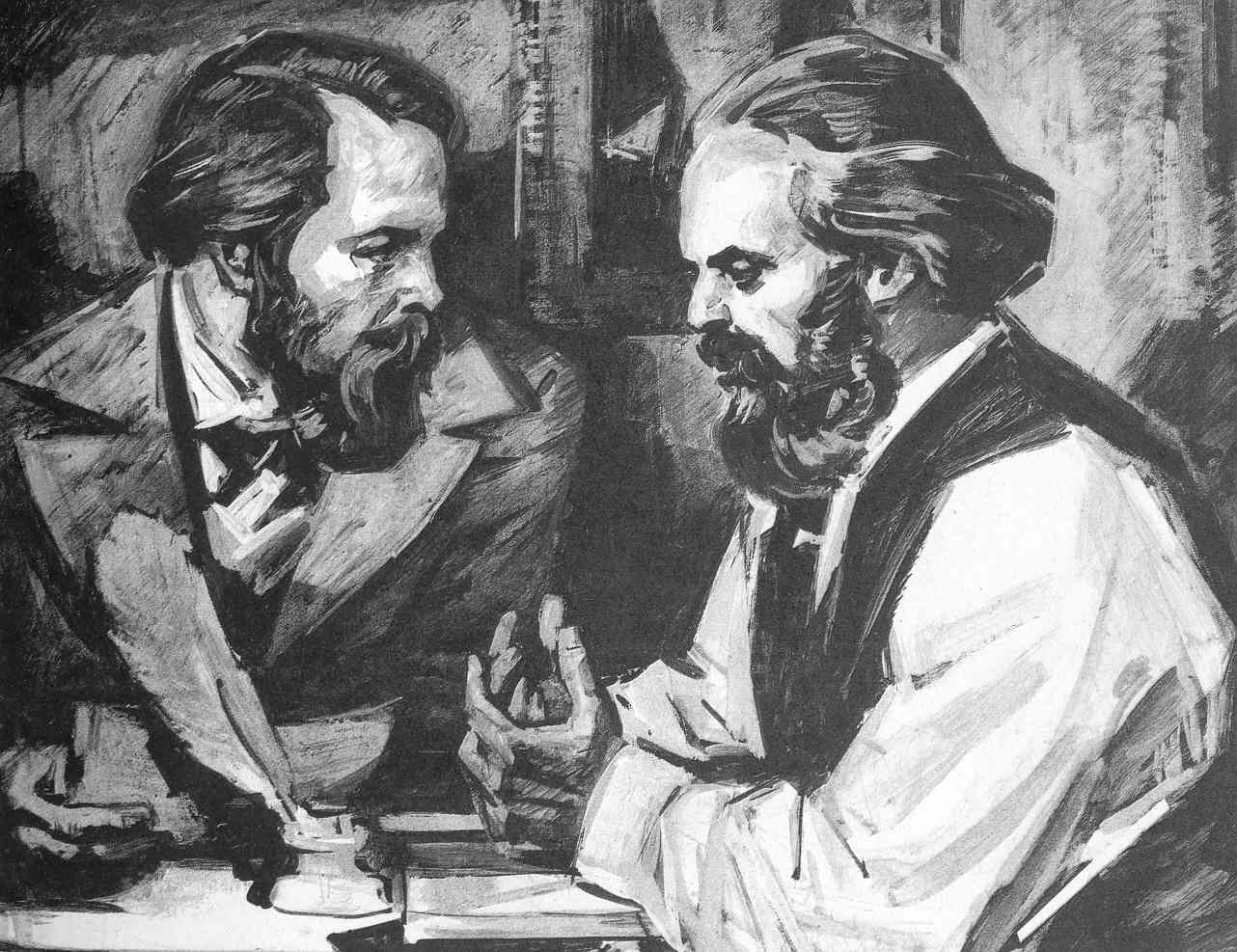
Marx and Engles thought philosophy was useless when it came to fundamentally changing culture.
In a recent article defending the value of the humanities, HPR writer Taonga Leslie argues that liberal studies drive culture. Shifts in “cultural interpretation,” we are told, allegedly originating in the halls of academia, are “creating a vastly different society.”
For example, Leslie argues the growing acceptance of queer and transgender identities seems to “owe much to Judith’s Butler’s publication of Gender Trouble in 1990”; the Holocaust was mainly “the result of currents in philosophical thought that had begun a century earlier”; and recent developments in feminism trace their origins to “Simone de Beauvoir’s The Second Sex in 1949.”
Leslie’s theory of cultural production inverts the causal relationship between our material world and the world of ideas. Ideas do not drive history; productive forces do. Our total level of economic development, by which I mean the efficiency of our means of production (our tools, instruments, machinery, and technological capacities) coupled with the efficiency of our labor power, is what transforms culture. In explaining our social world, it is imperative that these variables, rather than “ideas”, are accorded explanatory primacy.
The danger in inverting this relationship is real and severe, for not only does it lead directly to erroneous interpretations of history, but it also produces ineffective recommendations for how to transform our future.
Take the case of gay equality, which Leslie believes “owes much” to Judith Butler’s publication of Gender Trouble in 1990. Is this really so? Let’s consider the counterfactual. Would gay tolerance be any less pervasive in our society today had Butler never been born? The answer, I think, is “no.” To be clear, I do not deny that such production of ideas may well have played some role in the chain of events that promoted gay equality across history; I deny only that these links were of fundamental importance. Whatever the extent of their causal efficacy, they are only a response to underlying material conditions. It is changes in these latter variables to which gay equality “owes much.”
How would this materialist story run? It would begin, I believe, with the Industrial Revolution and its breakthroughs in productive capacities. It would then chart the development of these forces, record its corresponding changes in productive relations, and ultimately explain concomitant changes in social ideology.
It is against the backdrop of this materialist understanding of history that The Crimson’s editorial, which Leslie chides, gains important meaning. Students pursuing degrees in science, technology, engineering, and math will be more likely than others to transform the productive forces of our society and, indirectly, our ideological world.
That understanding leaves us with a completely different set of instructions for how to advance social justice going forward. Leslie believes the humanities offers low-income and students of color a powerful tool to combat “the power of the white and the well off to shape culture.” On the materialist view, however, such a tool is exceedingly dull. The tools that change society are material. Money, along with control or influence over the development of the productive forces, is where the blood bath is. That is what it really means to interpret our reality “through the lens of power.” Power resides primarily in cold, hard cash, not in ideas. Rather than ushering low-income or minority students into the humanities, we should encourage them to pursue degrees that will increase their financial standing or enhance their ability to develop our productive forces. Only then will they have the power to transform culture.
If there is any doubt as to whether ideas or money (along with development of productive forces) are what ultimately rule the day, one need look no further than the modern gay rights movement. It is not by coincidence that most of the world’s leading industrial economies, studies show, are pro-gay, that those in developing states are increasingly pro-gay, and that those nations at the lowest levels of productive development are typically anti-gay. That logic even holds intra-nationally. This relationship, I would argue, is not random; it is causal and provides a road map for future progress. The spread of gender and sexual equality across the globe follows from economic development. Students of math, science, technology, and engineering will do more to aid this diffusion than students in humanities.
As to the powerful role of money in this story, the loud shrills that emit daily from WGS-departments across the nation bare testament to the fact that it is a wealthy elite, not radical theorists, who hold the reins of power in the modern LGBT movement. Why else has the repeal of Don’t Ask Don’t Tell and marriage equality been top agenda items in this movement? Since when do radicals support marriage and the armed forces?
Marx’s early critique of the Young Hegelians rings here with newfound truth: these industrialists of philosophy forget that they are in no way combating the real, existing world when they are merely combatting the phrases of this world.
